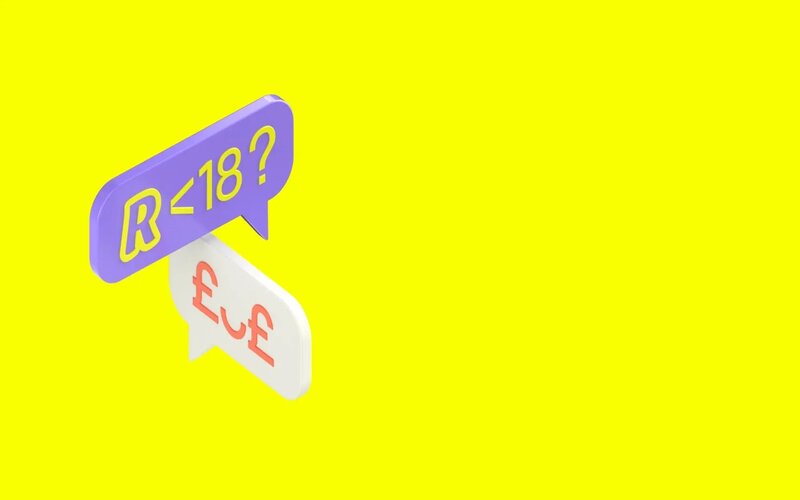Like, there’s the Medicare Levy and the Medicare Levy surcharge and despite the fact they have extremely similar names, they’re not the same thing.
What is the Medicare Levy?
Medicare (Australia’s public health system, for the uninitiated) is partially funded by taxpayers who pay an extra tax called the Medicare Levy. The Medicare Levy is 2% of your taxable income if you earn above the threshold (more on this below) and is in addition to the tax you pay on your taxable income.
The Medicare Levy is collected from you in the same way that income tax is. The amount of tax your employer withholds from your salary includes an amount that covers the Medicare Levy. Your actual Medicare Levy amount is calculated by the ATO when you lodge your tax return at tax time.
How much is the Medicare Levy?
As we mentioned above, the Medicare Levy is 2% of your taxable income if you earn above the threshold. So if your annual taxable income is $85,000, your Medicare Levy would be $1,700.
In 2018-19 the threshold is $22,398 per year ($35,418 for seniors and pensioners entitled to the seniors and pensioners tax offset). If your income is below this threshold then you may not have to pay the Medicare Levy. However, if you’re a low-income earner who earns between $22,398 and $27,997 per year ($35,418 - $44,272 for seniors and pensioners entitled to the seniors and pensioners tax offset) then you will only have to pay part of the Medicare Levy.
It’s also important to note that even if your income doesn’t fall between those brackets, you could still be eligible for a reduced levy based on your family taxable income. To find out how much Medicare Levy you’ll need to pay, check out the ATO’s Medicare Levy calculator.
Medicare Levy exemption
People who earn less than the Medicare Levy threshold could be eligible for an exemption. For the 2018-19 financial year, you would not have to pay the Medicare Levy if your taxable income is equal to or less than $22,398 ($35,418 for seniors and pensioners entitled to the seniors and pensioners tax offset).
You could also be exempt from paying the Medicare Levy if you:
-
Meet certain medical requirements: Pensioners who are blind, those who are entitled to full free medical treatment for all conditions under Defence Force arrangements or Veterans' Affairs Repatriation Health Card, or those who have received a sickness allowance from Centrelink, are entitled to full and half exemptions from the Medicare Levy.
-
Are a foreign resident: You can claim a full exemption from the Levy if you were a foreign resident for the whole year. If you were a foreign resident for part of the year, you can still claim full exemption from the Medicare Levy if you didn’t have any dependents for that period, or if all your dependents were in a Medicare Levy exemption category for the period of time you were a foreign resident for.
-
Are not entitled to Medicare benefits: If you have a Medicare Entitlement Statement from the Department of Human Services and did not have any dependents during that period (or they were also exempt) you won’t have to pay the levy. You may also qualify for a full exemption under this category if you were a member of a diplomatic mission or consular post in Australia, were not an Australian citizen, or you don’t normally live in Australia.
What is the Medicare Levy Surcharge?
In addition to the Medicare Levy, you may also have to pay the Medicare Levy Surcharge (MLS) if you don’t have an appropriate level of private patient hospital cover and your income is over a certain amount ($90,000 for singles and a combined income of $180,00 for families). The purpose of the surcharge is to encourage higher-income earners to take out private health insurance and use the private health system to relieve the pressure on the public Medicare system.
How much is the Medicare Levy Surcharge?
The Medicare Levy Surcharge (MLS) is calculated by a tier system, at a rate between 0% and 1.5% of your income. The table below displays the current MLS thresholds and rates (correct at the time of writing).
For families with two or more dependent children, the family income threshold is increased by $1,500 for each dependent child after the first child.
Medicare Levy surcharge threshold
If you’re single and earning over $90,000 or you're coupled up and have a combined income of $180,000 and you don’t have the right level of private health cover that would see you avoid paying the surcharge, you could end up having to pay quite a bit of tax.
For example, a single who falls into Tier 1 would need to pay a minimum of $900 and a maximum of $1,050. Families earning over $180,000 a year would be taxed at least $1,800 a year for not taking out private health cover, while families in the top income bracket could easily fork out up to $4,200 or more every year.
If you want to avoid paying the surcharge, or you want to be eligible for an exemption as a higher income earner, you need to have the right level of private patient hospital cover from an Australian private health fund.
Medicare levy vs private health insurance
Medicare levy
The Medicare levy is a tax many of us already pay to fund the public healthcare system and is collected from you in the same way that income tax is. The levy is 2% of your taxable income.
The Medicare Levy Surcharge (MLS) is an additional tax only paid by higher-income earners without private health insurance on top of the levy. Those earning above $90,000 annually ($180,000 for families) are required to pay the MLS. In the table below are the MLS surcharge rates.
If you, your spouse or any of your dependents are covered by private health insurance, you won’t have to pay the MLS and may be eligible for the private health insurance rebate (depending on your income). This rebate is an amount the government contributes towards the cost of your private health insurance premiums.
However, you’ll only be exempt from paying the MLS if you have the appropriate level of private hospital cover.
Private health insurance
Private health insurance can be expensive. Depending on the policy, you could be forking out thousands of dollars in premiums each year. Premiums can also go up each year (they went up by 3.25% in 2019 and that was the lowest annual increase in 18 years).
However, if you take out private health insurance after the age of 31, you will be forced to pay a 2% loading on the premium for every year over 30 you went without private hospital cover. This is the Government’s Lifetime Health Cover (LHC) initiative designed to encourage Australians to take out private health insurance and relieve pressure on the public system.
Frequently asked questions
1. When did Medicare start in Australia?
Medicare began in Australia on 1 February 1984. At the time, the Minister for Health at the time Dr Neal Blewett described Medicare as a major social reform to produce a simple, fair, affordable insurance system that provides basic health cover to all Australians.
2. How much can I claim from Medicare?
How much you can claim back from Medicare depends on if the doctor provides bulk billing. If they do, you can claim 100% of the costs back.
But there are times when the doctor wants to charge you more than what Medicare will pay for that service. In that case, Medicare will still pay for part of the bill but you will have to fork out the rest.
3. Why is my Medicare levy so high?
For most people, the Medicare levy is 2% of your taxable income. However, those on low incomes or with certain medical requirements may qualify for a Medicare levy reduction or exemption. If you don’t have private health insurance and your income is above $90,000 for singles or above $180,000 for families and couples, you may also have to pay the Medicare levy surcharge (MLS) on top of the standard 2% Medicare levy.
Savings.com.au’s two cents
So as we’ve established, the Medicare Levy is a tax most of us already pay to fund the public health system, while the Medicare Levy Surcharge is an additional tax only paid by higher-income earners without private health insurance on top of the levy. While most of us can’t escape paying the Medicare Levy, for those on a higher income it could be cheaper to take out private health insurance than to pay the additional surcharge.
Read on for more ways to save money on your health insurance.



 Harrison Astbury
Harrison Astbury
 Brooke Cooper
Brooke Cooper
